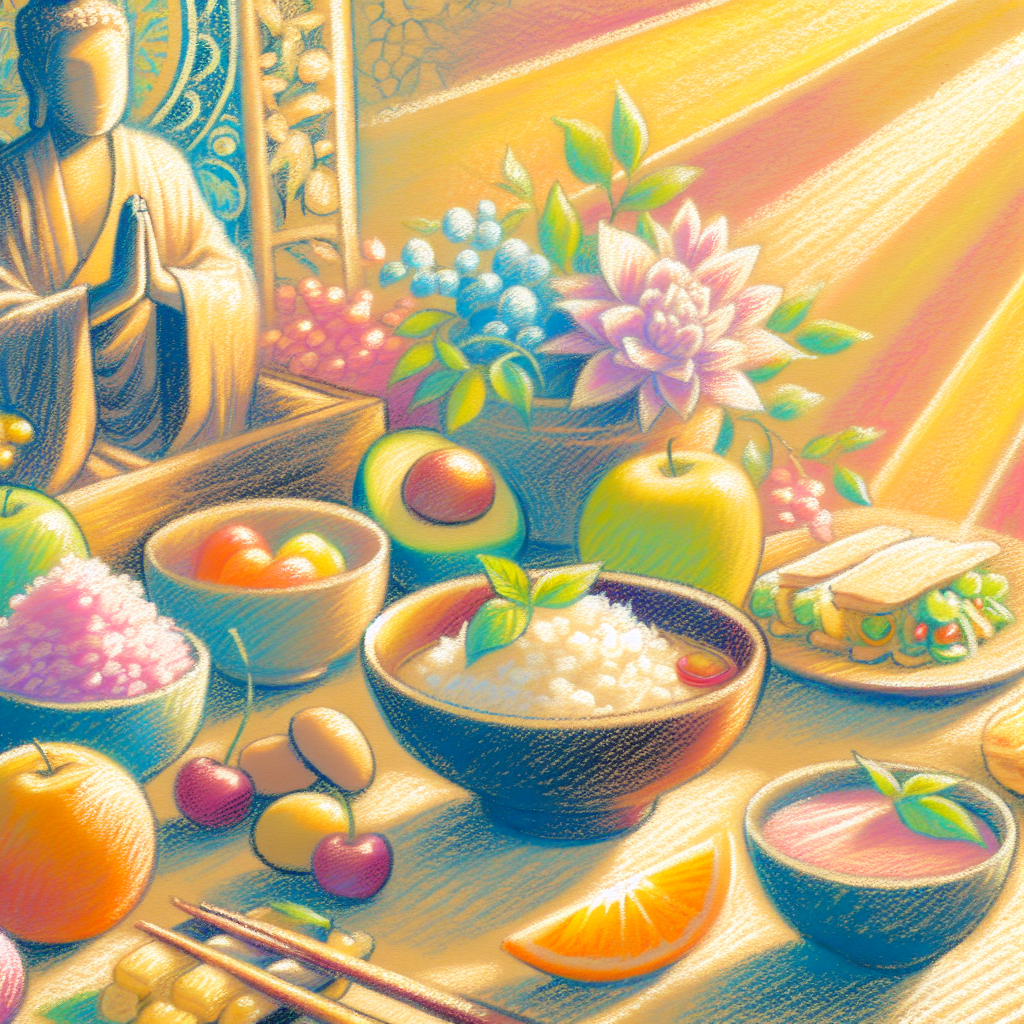The Spiritual Connection of Food: Exploring Japan’s Divine Relationship with Ingredients
Japan’s food culture goes beyond merely enjoying delicious dishes; it encompasses profound spiritual significance. Within this culture lies a belief that ingredients themselves possess sacred qualities, fostering a deep connection to nature and deities through food. Exploring this spiritual connection invites us to delve into the rich philosophy that underlies Japan’s cuisine.
The Sacredness of Japanese Ingredients
In Japan, ingredients are not merely sources of energy; they are regarded as sacred entities. Basic staples such as rice, vegetables, and fish are revered as gifts from nature. Rice, often called the “king of grains,” plays a crucial role as an offering to the gods.
A quintessential example is rice cultivation, which involves rituals dedicated to the Harvest God. Planting and harvest festivals are not merely ceremonies; they reflect acts of gratitude towards nature through food. These customs strengthen communal bonds and serve as a means to connect people.
The Philosophy of Taste and Gratitude
Japanese cuisine incorporates seasonal ingredients into every meal. This practice aims to express the changing cycles of nature through food. Seasonal produce carries unique flavors that resonate with specific times of the year, allowing individuals to synchronize with the natural world. Thus, the Japanese philosophy emphasizes harmony with nature and the importance of well-being achieved through food.
Moreover, the visual appeal of a dish is paramount. Plating, color combinations, and textures are meticulously considered, enhancing the overall dining experience and cultivating a sense of gratitude. Every element, from the choice of ingredients to the use of broths and spices, possesses deep meaning, elevating the act of eating to a spiritual ritual.
Zen Teachings Through Food
The relationship between Japan’s food culture and Zen philosophy is profound. Zen teaches that mealtime is part of one’s spiritual practice, where eating itself becomes a meditative act. Particularly, shojin ryori—vegetarian cuisine—represents a vital avenue for experiencing oneness with nature. The care taken in selecting ingredients, cooking methods, and presentation encourages tranquility and expresses gratitude.
During meals, phrases like “itadakimasu” and “gochisousama” are uttered, expressing thanks for the food. These greetings reflect gratitude not only towards the ingredients but also toward nature, those who cultivated the food, and all beings involved in the process. In this way, dining transcends a mere physical act, promoting an understanding of life force.
Festivals and Food Culture in Japan
Food plays an indispensable role in Japanese festivals. Specific dishes reflect the cultural heritage of different regions, often served as offerings at shrines, where mochi and sake symbolize sacredness.
Each festival and event showcases particular ingredients, which when shared with family and friends strengthens communal ties. Sharing a meal promotes deepening human relationships and reinforces spiritual connections. Consequently, Japanese festivals transcend mere entertainment, becoming venues for nurturing rich spirituality through food.
Conclusion
The essence of Japan’s food culture is profoundly layered by a spiritual philosophy. The sacredness of ingredients, expressions of gratitude, teachings derived from Zen, and communal bonds fostered through festivals interconnect, weaving a narrative that ties the hearts of individuals together. By comprehending these meanings, one can engage with Japanese cuisine not just as sustenance, but as an experience to feel. Embracing food can enrich life and emphasize the increasingly critical spiritual connections in today’s world.


